
A school uniform is a uniform worn by students primarily for a school or otherwise an educational institution. They are common in primary and secondary schools in various countries and are generally widespread in Africa, Asia, Oceania, and much of the Americas. But are not common in the United States, Canada, and most countries in continental Europe.
Gender studies is an interdisciplinary academic field devoted to analysing gender identity and gendered representation. Gender studies originated in the field of women's studies, concerning women, feminism, gender, and politics. The field now overlaps with queer studies and men's studies. Its rise to prominence, especially in Western universities after 1990, coincided with the rise of deconstruction.
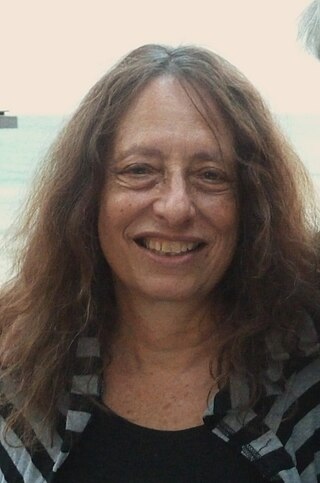
Carol Gilligan is an American feminist, ethicist, and psychologist, best known for her work on ethical community and ethical relationships.

Mixed-sex education, also known as mixed-gender education, co-education, or coeducation, is a system of education where males and females are educated together. Whereas single-sex education was more common up to the 19th century, mixed-sex education has since become standard in many cultures, particularly in western countries. Single-sex education remains prevalent in many Muslim countries. The relative merits of both systems have been the subject of debate.

Christina Marie Hoff Sommers is an American author and philosopher. Specializing in ethics, she is a resident scholar at the American Enterprise Institute. Sommers is known for her critique of contemporary feminism. Her work includes the books Who Stole Feminism? (1994) and The War Against Boys (2000). She also hosts a video blog called The Factual Feminist.

Education in Pakistan is overseen by the Federal Ministry of Education and the provincial governments, while the federal government mostly assists in curriculum development, accreditation and the financing of research and development. Article 25-A of the Constitution of Pakistan obligates the state to provide free and compulsory quality education to children of the age group 5 to 16 years. "The State shall provide free and compulsory education to all children of the age of five to sixteen years in such a manner as may be determined by law".

Florence Rosenfeld Howe was an American author, publisher, literary scholar, and historian who is considered to have been a leader of the contemporary feminist movement.
Women have made significant contributions to philosophy throughout the history of the discipline. Ancient examples of female philosophers include Maitreyi, Gargi Vachaknavi, Hipparchia of Maroneia and Arete of Cyrene. Some women philosophers were accepted during the medieval and modern eras, but none became part of the Western canon until the 20th and 21st century, when some sources indicate that Simone Weil, Susanne Langer, G.E.M. Anscombe, Hannah Arendt, and Simone de Beauvoir entered the canon.
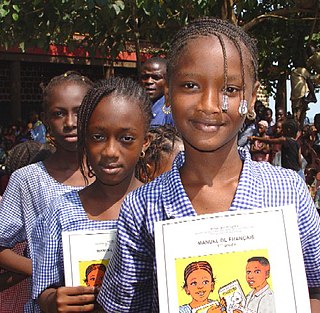
Female education is a catch-all term for a complex set of issues and debates surrounding education for girls and women. It is frequently called girls' education or women's education. It includes areas of gender equality and access to education. The education of women and girls is important for the alleviation of poverty. Broader related topics include single-sex education and religious education for women, in which education is divided along gender lines.

Sex differences in education are a type of sex discrimination in the education system affecting both men and women during and after their educational experiences. Men are more likely to be literate on a global average, although higher literacy scores for women are prevalent in many countries. Women are more likely to achieve a tertiary education degree compared to men of the same age. Men tended to receive more education than women in the past, but the gender gap in education has reversed in recent decades in most Western countries and many non-Western countries.
Gender inequality in India refers to health, education, economic and political inequalities between men and women in India. Various international gender inequality indices rank India differently on each of these factors, as well as on a composite basis, and these indices are controversial.
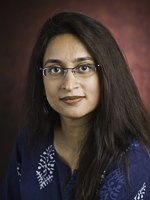
Deepa Kumar is an Indian American scholar and activist. She is a professor of Journalism and Media Studies at Rutgers University. Kumar has been referred to by the Media Education Foundation as “one of the nation’s foremost scholars on Islamophobia" and by the New York Times as "a world-renowned scholar of Islamophobia and race." She is a leader in the Rutgers faculty union, the AAUP-AFT. When she was president, the union fought for gender and race equity, and in 2019 won a contract that AFT president, Randi Weingarten, said “will inspire higher education professionals across [the] country to fight and win their own battles to improve their lives – and the lives of others – in the streets and at the bargaining table.”

Helene Lange was born in 1848 in Oldenburg. Through her determination, she rose above the trials of her early life, including the loss of her parents, to become a leading voice for women's access to higher education and professional careers, particularly in teaching. She helped motivate the establishment of the Frauenbewegung, or women's movement, in Germany. She worked constantly to raise the standards of education among women, believing that social progress was impossible without equal educational opportunities being given to women.
In the early colonial history of the United States, higher education was designed for men only. Since the 1800s, women's positions and opportunities in the educational sphere have increased. Since the late 1970s and early 1980s, women have surpassed men in number of bachelor's degrees and master's degrees conferred annually in the United States and women have continuously been the growing majority ever since, with men comprising a continuously lower minority in earning either degree. The same asymmetry has occurred with Doctorate degrees since 2005 with women being the continuously growing majority and men a continuously lower minority.
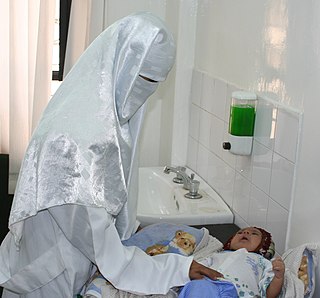
Women in Yemen suffer from gender-based discrimination due to the highly patriarchal character of Yemeni society. Although the government of Yemen has made efforts to improve the rights of women, many cultural and religious norms stand in the way of equal rights for women. Poor enforcement of the legislation by the Yemeni government exacerbates the problem.
Women's education in Pakistan is a fundamental right of every female citizen, according to article thirty-seven of the Constitution of Pakistan, but gender discrepancies still exist in the educational sector. According to the 2011 Human Development Report of the United Nations Development Program, approximately twice as many males as females receive a secondary education in Pakistan, and public expenditures on education amount to only 2.7% of the GDP of the country. The unemployment rate of female graduates in Pakistan is approximately 3.8 times higher than that of their male counterparts.
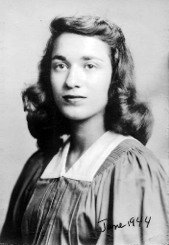
Bernice Resnick Sandler was an American women's rights activist. She is best known for being instrumental in the creation of Title IX, a portion of the Education Amendments of 1972, in conjunction with representatives Edith Green and Patsy Mink and Senator Birch Bayh in the 1970s. She has been called "the Godmother of Title IX" by The New York Times. Sandler wrote extensively about sexual and peer harassment towards women on campus, coining the phrase "the chilly campus climate".
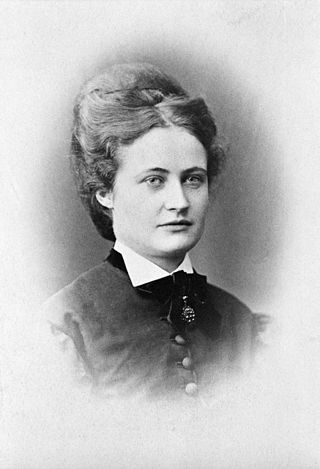
Anna Maria Carolina Sandström was a Swedish feminist, reform pedagogue and a pioneer within the educational system of her country. She is referred to as the leading reform pedagogue within female education in Sweden in the late 19th century.

Cheris Kramarae is a scholar in the area of women's studies and communication, with her research primarily focusing on gender, language and communication, technology, and education. She is mostly known for her contributions to muted group theory, as well as A Feminist Dictionary, in which she was a co-author.
Shaundra Bryant Daily is an American professor and author known for her work in the field of human-centered computing and broadening participation in STEM. She is a professor in the Department of Electrical and Computer Engineering and Computer Science at Duke University.













